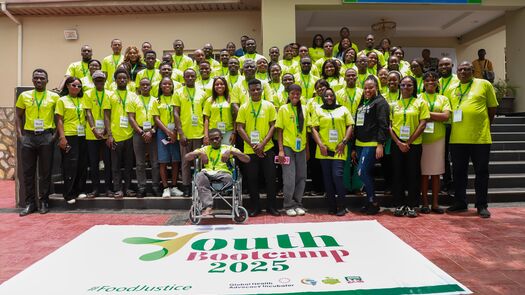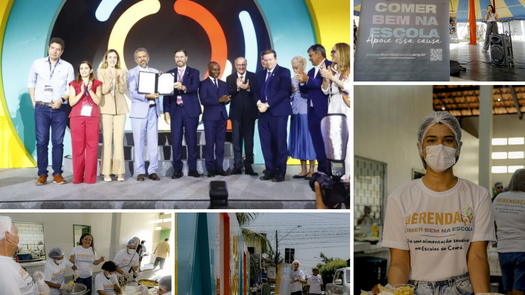November 25, 2025
On November 16, the Global Health Advocacy Incubator’s (GHAI) Food Policy program released a new report titled “Behind the Labels: Big Food’s War on Healthy Food Policies.” The report documents how the ultra-processed food and beverage industry has aggressively fought to weaken and undermine front of package labels (FOPL) globally and across a spectrum of the policy process.
The interference tactics have been used in countries where governments are considering adding basic back of package labels since consumers have little to no information about the content of their food. Industry has also actively leveraged loopholes to undermine the policies in countries who have regulations or laws. Behind the Labels provides recommendations to advocates and civil society organizations that are currently facing industry interference while trying to pass FOPL laws, among other healthy food policies.
In response to rapidly increasing rates of diet-related noncommunicable diseases like obesity and heart disease, there has been growing momentum by governments across the globe to adopt and enact FOPL laws to help consumers make more informed decisions about the food and drinks they purchase. Despite attempts by the ultra-processed food and beverage industry, advocates in several countries, including Argentina, Colombia and Mexico, have successfully advocated for strong front of package warning labels.
Throughout 2021, GHAI monitored and analyzed industry actions to systematically oppose and weaken FOPL policies across diverse geographies. GHAI found that the ultra-processed food and beverage industry uses an orchestrated playbook comprised of five overarching strategies that are adapted to fit local contexts. These strategies are bolstered by specific industry narratives.
The playbook includes these strategies aimed at directly and indirectly opposing food policies:
1. Protect the industry’s reputation and brands through corporate washing.
2. Influence regulations, policies, and processes through multilateral bodies at global, regional and local levels to delay policy implementation and threaten countries with legal, trade and economic concerns.
3. Defend freedom of choice while blaming consumers for the consequences of their health-related decisions.
4. Imply that their products contribute to health, the environment and society while blocking the development and implementation of healthy food policies.
5. Seek loopholes in regulations to continue promoting ultra-processed products.
Advocates from the Food Policy program spoke about their experiences countering industry interference when trying to pass healthy food policies in their countries:
“The food and beverage industries will do whatever it takes to protect their business interests, and this includes delaying, rejecting, and dismissing public health measures, even capturing decision making spaces.”
– Ana Larrañaga, Advocate from Mexico
“The mandatory nutrition labeling could help people raise their awareness on nutrition roles for health, and promote their behaviors of healthy food choices and practices of healthy diets.”
– Huyen Doan, GHAI Vietnam Country Director
“Health and adequate nutrition are fundamental rights; they are not commodities that can be left to the supply-and-demand game or the corporate interests of a particular sector. States must regulate and promote policies that ensure the enjoyment and exercise of these rights.”
– Maga Merlo, Co-coordinator of Fundeps Health Department (Argentina)
To read the full report, click here.
Check out the report’s microsite, which features examples from industry interference around the world as well as recommendations for advocates and civil society organizations (CSOs) on how to create effective strategies to counter and respond to industry interference.
To find out more about the report’s key findings and advocates talking about their experiences with industry interference, view our webinar here: English, Spanish, Portuguese



